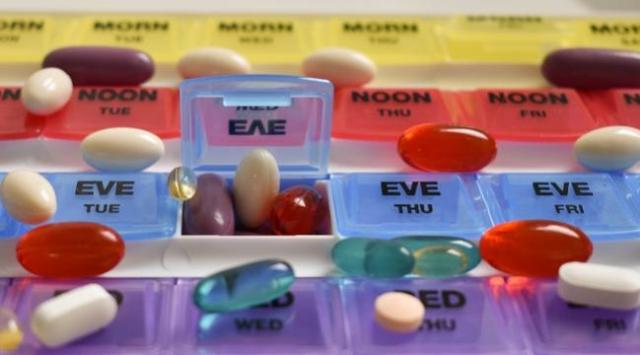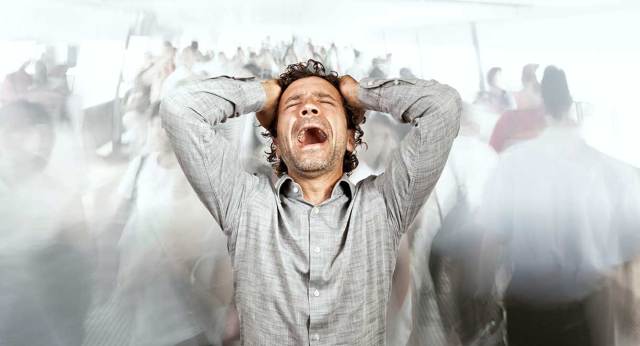Between diazepam vs propranolol for anxiety, which one has better outcomes, less side effects, fewer withdrawal symptoms, and what are the alternatives? Anxiety is a normal response to stress. When anxiety becomes excessive or prolonged, it can cause stress and lead to anxiety disorders.
While both medications have their own benefits, they also have their own side effects. Therefore, this article will help you understand the differences between diazepam and propranolol and their benefits and risks for specific diagnoses.
In general, benzodiazepines work by binding to the benzodiazepine site of the brain. They cause changes in the level of the neurotransmitter gamma-aminobutyric acid (GABA) which calms the central nervous system and suppresses anxiety. Therefore, when prescribed by a physician, benzodiazepines are an effective treatment for anxiety. However, the downside of benzodiazepines is that they have many side effects.

In contrast, propranolol is a cardiac anti-arrhythmic of the beta-blocker family. Specifically, it works by blocking the action of adrenaline which reduces the heart rate and decreases the force of contractions. Therefore, propranolol is often prescribed to people who are suffering from stress-induced arrhythmias, such as people with high levels of anxiety.
Contents
Diazepam Vs. propranolol: Which medication is better for anxiety?
In one study, diazepam was, in general, more effective than propranolol or placebo in treating anxiety symptoms. However, when comparing propranolol and a placebo, propranolol was more effective in patients with somatic anxiety but not in those with psychic anxiety, and the two medications were equivalent in patients with mixed anxiety.
The table below shows the Diazepam Vs. propranolol comparison:
| Property | Diazepam | Propranolol |
|---|---|---|
| Drug class | Benzodiazepine | Beta-blocker |
| Primary use | Anxiolytic or sedative | Hypertension, angina, migraines, and tremors |
| Mechanism of action | Enhances effect of GABA | Blocks beta-adrenergic receptors |
| Indications | Anxiety disorders, insomnia, muscle spasms, and alcohol withdrawal | Stage fright |
| Potential for addiction | High risk of habit-forming and addiction if misused or abused | Low risk of addiction |
| Side effects | Drowsiness, confusion, impaired coordination, addiction, and withdrawal symptoms | Fatigue, dizziness, slow heart rate, and other beta-blocker side effects |
| Use for anxiety disorders | Commonly used | Not typically used except for stage fright |
There are also some differences in side effects as indicated above. Diazepam has better efficacy for treating anxiety than propranolol, but propranolol is safer for people who have a history of arrhythmias or high blood pressure.
Moreover, more patients who take diazepam reported a positive response as compared to propranolol with 82% and 77% respectively. In the same reviews, 10% reported negative effects when taking diazepam as compared to 12% of patients who take propranolol.
Beta-blockers have been used to treat anxiety since the 1950s. They have proven to be effective for many people, and there are several different types of beta-blockers. These medications all work by blocking the effects of adrenaline, which is a normal response to stress. By preventing your body from reacting to stress as much, you are less likely to experience negative emotions like anxiety
However, diazepam and propranolol have a number of side effects and have different risks for specific diagnoses. Let’s take a closer look at their benefits and risks.
Is diazepam better than propranolol?
Diazepam and propranolol are both excellent tools for managing symptoms of anxiety disorders. However, if you are interested in the differences between these two drugs, then this article will be beneficial to you. It will help you understand the differences between benzodiazepines and beta-blockers, which will help you make the best decision for your specific diagnosis.
Generally, benzodiazepines work by binding to the benzodiazepine site of the brain. They cause changes in the level of the neurotransmitter gamma-aminobutyric acid (GABA) which calms the central nervous system and suppresses anxiety. However, there are many side effects associated with them as well, such as sedation, tolerance, and physical dependence among others.
Propranolol is a cardiac anti-arrhythmic of the beta-blocker family which works by blocking the action of adrenaline which decreases the heart rate and force of contraction. It can be prescribed to people who have stress-induced arrhythmias (such as people with high levels of anxiety). With that being said, diazepam was more effective than placebo or propranolol since it has a greater therapeutic response for this drug alone or in combination with propranolol.

What is Diazepam (Valium) and how does it work?
Diazepam is a treatment for many different types of conditions and disorders. It is most frequently used as a treatment for panic disorder, acute alcohol withdrawal syndrome, muscle spasms, seizures, and anxiety.
Diazepam works by actually slowing down activity in your brain. Diazepam starts working within 30 minutes when taken orally and provides relief from anxiety symptoms in about 4 hours.
Diazepam – Is It a Good Choice for Anxiety?
Benzodiazepines, such as diazepam, are used to treat anxiety. They work by binding to the benzodiazepine site of the brain. This causes changes in the level of the neurotransmitter gamma-aminobutyric acid (GABA) which calms the central nervous system and suppresses anxiety.
However, there are many side effects to benzodiazepines and they may not be an appropriate treatment for everyone with anxiety. One of these side effects is that it can cause dependence and addiction, which is why it should only be taken for a short time period under a physician’s supervision.
Other side effects include memory problems, trembling or shaking, irritable moods and depression, sleepiness or insomnia, dizziness or drowsiness, tiredness or weakness, feeling unsteady when standing up from sitting or lying down quickly leading to falls, difficulty concentrating, headache or blurred vision.
Diazepam also has other risks for specific diagnoses. If you have a history of drug abuse then benzodiazepines may not be appropriate because they can be addictive. If you have heart disease then taking this medication may make your condition worse because it slows down the heart rate and blood flow to your muscles.
And if you have a liver disease then taking this medication may also worsen your condition because it can affect how well your liver functions in breaking down toxins from your body. So overall diazepam does not seem like a good choice for those who suffer from liver or kidney disease.
Risks of Diazepam
Diazepam even though considered one of the best medications for mental disorders, has a number of side effects. They include:
- Drowsiness and dizziness
- Tiredness and muscle weakness
- Headache
- Dry mouth
- Nausea
- Constipation
- Loss of appetite
- Drugged feeling
- Slurred speech
- Depression
- Irritability.
Diazepam is a prescription medication that can be useful for anxiety. These side effects may last for a few days after the medication has been stopped.
When taken by healthy persons, diazepam taken as a hypnotic agent induces a significant HR increase. This is due to increased vagal tone. Diazepam has a direct effect on the heart which can lead to arrhythmias. Propranolol has not been shown to increase HR in healthy subjects.
What is Propranolol and how does it work?
Propranolol is a beta-blocker, which slows down the heart rate. This way it is able to calm you down as it tackles the physical symptoms of anxiety which is why it is often prescribed for people with high levels of anxiety.
It can slow down your heart rate and decrease the force of contractions, which can help with related symptoms such as palpitations and chest pain.
Propranolol – Is It a Good Choice for Anxiety?
Propranolol is used widely and is also recognized as an effective treatment for anxiety. Moreover, it is safe even when taken over a long time. However, because propranolol is a beta-blocker, there are some side effects that may occur from taking the medication.
For example, people who take propranolol may experience fatigue, dizziness, nausea, or sexual dysfunction. There are also times in which people who suffer from asthma may not be able to take propranolol due to their airways being too sensitive.
Another risk of taking propranolol is that it will block the adrenaline response and can result in a feeling of being “flat”. Furthermore, high doses of propranolol can lead to significant weight gain and slow down metabolism

Risks of Propranolol
Propranolol is a beta-blocker that causes changes in heart rate and blood pressure by lowering adrenaline levels in the body.
Propranolol does have many side effects like weakness or tiredness, Cold hands or feet; diarrhea; dizziness or lightheadedness when you stand up or sit up too quickly; difficulty breathing or swallowing; hair loss, dry mouth (which may result from other medications); muscle cramps or weakness when you exercise; nausea and vomiting (this may occur with high doses).
Furthermore, propranolol also has some serious side effects such as allergic reactions (this includes rash) which may result in a sudden drop in blood pressure with symptoms like fast pulse and sweating; changes in your blood sugar levels leading to increased hunger and thirst; cold hands or feet with numbness that will not go away (symptoms of Raynaud’s syndrome); nightmares, swelling of legs and ankles, a sudden increase in weight and Breathing problems
Propranolol dosage for anxiety
For anxiety, you can start with 40mg once a day which can be increased to 40mg taken 3 times a day. It is important to note that the medication is a prescription medication thus we recommend talking to a doctor before taking the medication.
The doctor is able to check your symptoms and prescribe a medication that suits your condition and your age, severity, and plans. Propranolol is a cardiac anti-arrhythmic of the beta-blocker family. Specifically, it works by blocking the action of adrenaline which reduces the heart rate and decreases the force of contractions.
Therefore, propranolol is often prescribed to people who are suffering from stress-induced arrhythmias, such as people with high levels of anxiety. However, diazepam and propranolol have many side effects and have different risks for specific diagnoses. Let’s take a closer look at their benefits and risks
Taking propranolol with diazepam
Yes, you can take propranolol with diazepam. The DIAZEPAM and PROPRANOLOL combination is used in the treatment of anxiety. There is a study that shows the combination of propranolol and diazepam was more effective than diazepam alone.
A combination has an anxiolytic action on your brain ensuring that you generally feel better faster if you have an anxiety disorder or a panic attack.
This may be because propranolol blocks the action of adrenaline which reduces the heart rate and decreases the force of contractions.
Therefore, it would make sense for someone who has high levels of anxiety to have a lower heart rate as well as less forceful contractions. It also makes sense that someone suffering from stress-induced arrhythmias (such as people with high levels of anxiety) would benefit from having their heart rate decreased and their contractions less intense.
In contrast, benzodiazepines work by binding to the benzodiazepine site of the brain which calms the central nervous system and suppresses anxiety. The downside of benzodiazepines is that they have many side effects like sedation, confusion, dizziness, and depersonalization.
Taking diazepam and beta-blockers together
Yes, taking a beta-blocker with Valium may help increase the effectiveness of the benzodiazepine. This however should come as a prescription from your doctor to prevent serious side effects. Moreover, you should not increase the dose of any of the two medications if not informed by the doctor.
You can check the potential side effects of using the two drugs together as follows:
What are the side effects of diazepam? The most common side effects that can occur with benzodiazepines include sedation, lethargy, unsteadiness, and imbalance. Benzodiazepines can also produce a feeling of physical weakness in some people. On the other hand, some people may experience paradoxical excitement from benzodiazepines.
What are the side effects of propranolol? Propranolol is typically considered safe for most people when taken as prescribed. However, there are some possible side effects that can occur from taking propranolol including dizziness, lightheadedness, fatigue, and headache.
Drugs that should not be taken with diazepam
Diazepam is a benzodiazepine that can interact with other medications such as clozapine, fluvoxamine, orlistat, sodium oxybate, and ergot alkaloids.
These drugs should not be taken with diazepam, because they may reduce the effectiveness of diazepam or cause an increased risk of side effects.
Some people should not take diazepam at all, such as those with a history of alcohol or substance abuse. People on other medication for seizures, depression, schizophrenia, or liver problems should also avoid taking diazepam.
Medications that should not be taken with propranolol
There are some dications that should not be taken with propranolol. These medications include other beta-blockers, ACE inhibitors, calcium channel blockers, and alpha-blockers.
These medications should not be taken with propranolol because they can cause a severe drop in blood pressure. Therefore, if you are taking any of these medications, your physician should discuss whether or not you need to take propranolol.
What is the best time to take propranolol?
Propranolol extended-release capsules are best taken at bedtime (10 pm) but in most instances, the prescription by your doctor may be to take the medication three times a day. In this case, the medication can be taken at 8-hourly intervals between doses for the best effect.
The benefits of propranolol include:
- Effective for stress-induced arrhythmias
- Prescriptions for people with anxiety
- Prescriptions for people with a heart condition
- Decreases heart rate and force of contractions
- Works by blocking adrenaline
Does diazepam stop panic attacks?
Yes, Valium is effective in lessening the intensity of panic attacks. Moreover, it is also effective in treating other anxiety symptoms. Diazepam is often prescribed to people who are suffering from anxiety. Specifically, it is a benzodiazepine that calms the central nervous system and suppresses anxiety.
The downside of benzodiazepines is that they have many side effects. So while diazepam can be an effective treatment for anxiety, it also has many side effects.
What can a heart patient take for anxiety?
Sertraline, citalopram, and tricyclic agents are better tolerated for heart patients in treating patients with anxiety and depression. Heart patients who are suffering from stress-induced arrhythmias, such as people with high levels of anxiety, can often be prescribed propranolol to help relieve their symptoms.
However, propranolol is a beta-blocker that can cause blood pressure and heart rate to drop too low, which could be life-threatening for someone who already has a weakened heart. Therefore, it’s important that they take the medication in conjunction with other drugs like sertraline and citalopram to avoid complications
How much diazepam should I take for anxiety?
The dosage for diazepam depends on the age, condition, and your doctor’s recommendation. When Adults are taking diazepam for anxiety, they can start with 2 to 10 milligrams (mg) which are taken 2 to 4 times a day while older adults can start with 2 to 2.5 mg 1 or 2 times a day
Final Words
Diazepam and propranolol are both effective treatments for anxiety but have their own side effects. Diazepam is an effective treatment for anxiety but has many side effects including sedation, dependence, and withdrawal symptoms.
Propranolol is a cardiac anti-arrhythmic that is used to treat people with high levels of anxiety but also has its own side effects. Therefore, it is important to consult a physician before deciding on which medication to take.
The decision to choose which anxiety medication is right for you will depend on the diagnosis. If you have a diagnosis of anxiety, then your doctor will prescribe treatment based on your specific needs.
For example, if your doctor thinks that you have an anxiety disorder, then diazepam would be an appropriate treatment. However, if your doctor thinks that you might have a heart problem, then propranolol would be an appropriate treatment.
FAQs
What is propranolol prescribed for?
Propranolol is prescribed to people who have high levels of anxiety. It is a cardiac anti-arrhythmic that often works by blocking the action of adrenaline which can prevent heart attacks and reduce the risk of stroke.
What are some side effects of diazepam?
Diazepam has many side effects, including sedation (sleepiness), dizziness and coordination problems. These side effects could impact your ability to function at work and cause withdrawal symptoms when you stop taking them.
What are some side effects of propranolol?
Some potential side effects are fatigue, cold extremities, bradycardia, and bronchospasm. These may not be as common as those seen with benzodiazepines like diazepam but they still need to be taken into consideration before taking this medication.
Which is better between propranolol and valium?
There is no clear answer to this question. Some people may find that benzodiazepines are more effective, while others may find propranolol more helpful. However, many people report that propranolol is less likely to cause withdrawal symptoms such as insomnia and anxiety after stopping use compared with benzodiazepines.